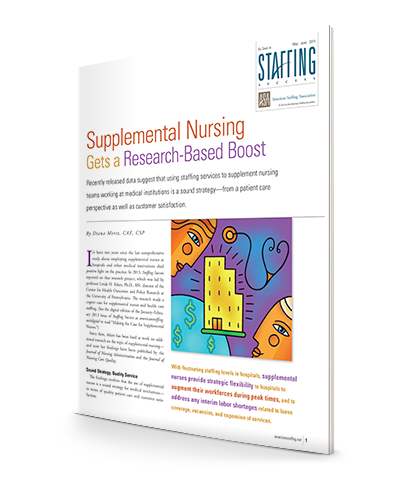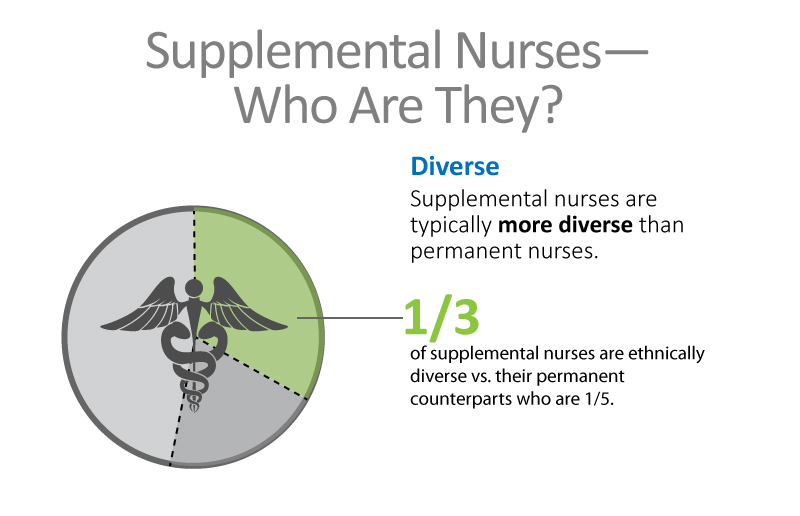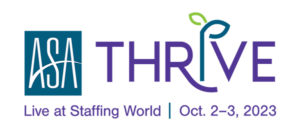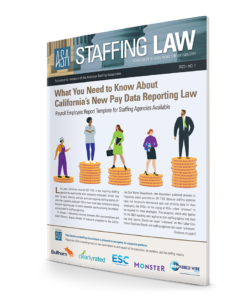Linda Aiken, Ph.D., RN, director of the University of Pennsylvania Center for Health Outcomes and Policy Research, has long-examined supplemental nurses and their strategic role in the hospital workforce. ASA has engaged with Aiken in recent years to help deliver the valuable research staffing firms operating in the health care sector need to enhance their operations and outreach to clients.
Here are several resources prepared especially for ASA member staffing firms.
Research Studies and Resources
Recent research conducted by Aiken supports the assertion that employing supplemental nurses does not detract from patients’ overall satisfaction and that the modest use of supplemental nurse staffing is a cost-effective strategy to address hospital short-term staffing needs.
These research findings were published in the April–June 2015 issue of the Journal of Nursing Care Quality, (“Cost Outcomes of Supplemental Nurse Staffing in a Large Medical Center: A Method for Quantifying Supplemental Nurse Cost Efficiency”) and in the March 2015 issue of the Journal of Nursing Administration (“Hospital Employment of Supplemental Registered Nurses and Patients’ Satisfaction of Care”).
Aiken’s most recent research findings in support of supplemental nursing were published in the May–June issue of issue of Staffing Success magazine (“Supplemental Nursing Gets a Research-Based Boost”). Download the PDF.

Data and Demographics
The data presented in the January–February 2013 issue of Staffing Success, “Making the Case for Supplemental Nurses,” conclude that supplemental nurses are just as educated as permanent nurses, are more likely to hold nursing licenses in several states simultaneously, and are typically more diverse than permanent nurses. Aiken also determined that supplemental nurses play a vital role during critical nurse shortages.
Additionally, the research conclusively dispelled the myth that negative patient outcomes are related to supplemental nurse staffing.
This research originally appeared in the November 2012 issue of Health Affairs (“Supplemental Nurses Are Just as Educated, Slightly Less Experienced, and More Diverse Compared to Permanent Nurses”), in the December 2012 issue of Health Services Research (“Hospital Use of Agency-Employed Supplemental Nurses and Patient Mortality and Failure to Rescue”), and in the December 2012 issue of the Journal of Nursing Administration (“Quality of Outcomes of Hospital Supplemental Nurse Staffing”).
Supplemental Nursing Infographic
ASA has developed an infographic (“Supplemental Nurses—Who Are They?) that succinctly summarizes the key points of Aiken’s research in a visually appealing and easily digestible manner.




